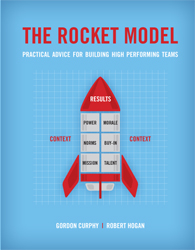
Teams have many norms, some of which might involve safety, expected work hours, e-mail inquiry response times, or meeting attendance. Research shows that some norms are more important than others; the rules governing a team’s operating rhythm, communication, decision-making, and accountability norms have the biggest impact on team cohesiveness and performance.
A team’s operating rhythm concerns the frequency and management of team meetings, and a surprisingly high number of leaders do not know how to run efficient team meetings. Communication may be a problem if team members complain about being in the dark, confidential conversations being shared with outsiders, or that difficult topics never get raised. Decision-making can be a problem when leaders make autocratic decisions or, conversely, groups make too many decisions by consensus. Leaders who play favorites or fail to hold members accountable for their performance or misbehavior usually have problems with team morale and performance.
Given the issues surrounding sub-standard performance and norm violations, every group and team will need a sheriff. Although members can play the role of team disciplinarian (i.e., shop stewards, athletic team captains, and Non-Commissioned Officers), more often than not the leaders must play this role. Unlike teams populated with Slackers, Criticizers, and Brown-Nosers, leaders who set clear expectations, hold members accountable, and treat people fairly usually attract and/or retain Self-Starters. If leaders are unwilling to uphold standards and hold people accountable for their performance, they will create dysfunctional teams that fail to achieve their goals. Establishing an explicit team accountability norm is important since few things can wreck team morale more quickly than favoritism. When members detect foul play, they can be expected to spend time complaining about the situations rather than doing what is needed for their teams to succeed. A related but even more prevalent problem for groups and teams is a lack of consequences. Too many leaders are more concerned about winning popularity contests than beating other teams, and are reluctant to hold members accountable for sub-standard performance and norm violations. Leaders who play favorites or fail to maintain standards will eventually have teams full of Brown-Nosers, Slackers, and Criticizers.